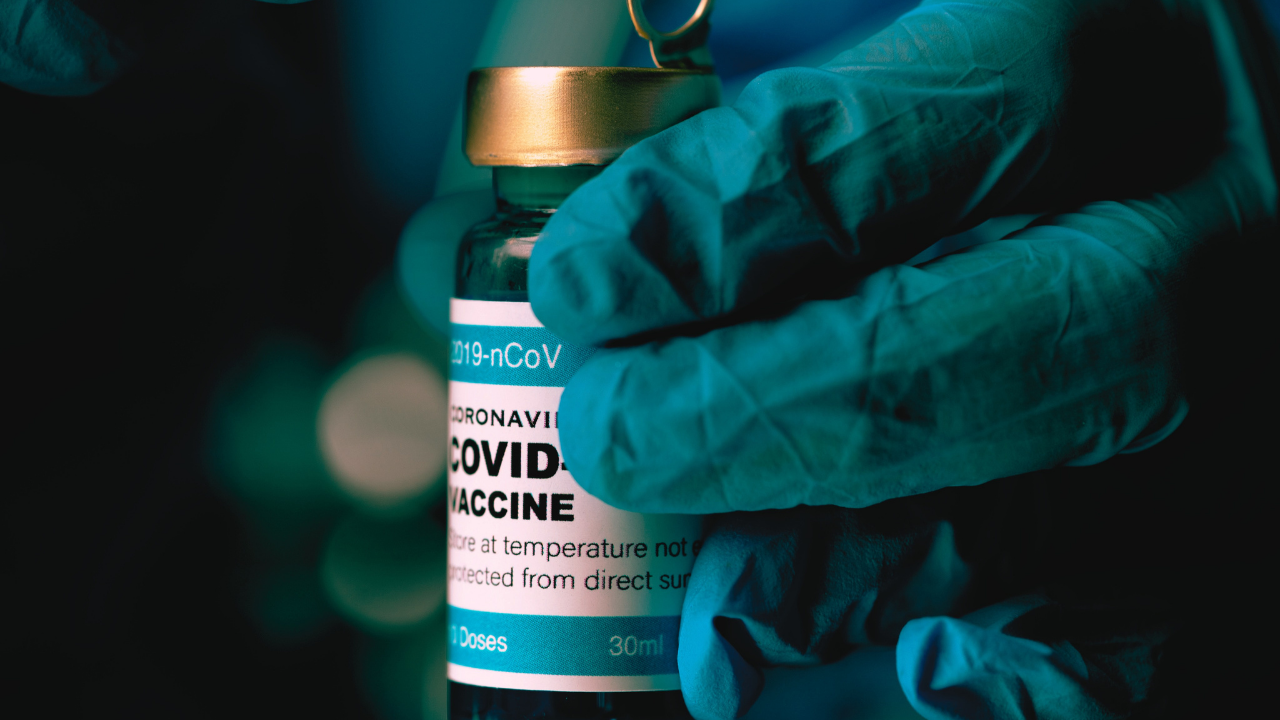
Why Wearing a Face Mask is Still Important
 By David Best, Director of Public Health
By David Best, Director of Public Health
Aristotle famously wrote, "The more you know, the more you realize you don't know." If there was ever a quote most apt at explaining our knowledge of COVID-19 transmission, this would almost certainly be it. In the early weeks and months of the pandemic, the universal scientific guidance was that frequent handwashing would help stop the spread of the novel virus. After two years of isolation and innovation, scientific knowledge has grown considerably with public health measures like vaccines, testing, physical distancing, and face masks all seen as crucial tools in ending this unprecedented global crisis. By now, what should be abundantly clear to all is that one solution alone is not enough.
Up in the Air
Not the 2009 movie with George Clooney about a corporate hatchet man who loves his life on the road, but rather the prevailing consensus on how the viral particles we emit when breathing and speaking play their role in transmitting the disease through the air. In the early days of SARS-CoV-2, the importance of ventilation as a protective measure was not often communicated as part of the discourse. As our awareness of aerosol conveyance increased, this rapidly changed. Even as recently as last week, a new study emerged challenging previously held conventions regarding airborne transmission over longer distances.
According to the world’s first simulations of how the virus survives in exhaled air, the research published by the University of Bristol suggests that COVID loses 90% of its ability to infect within 20 minutes of being airborne with most of the loss found to occur inside the first five minutes. “People have been focused on poorly ventilated spaces and thinking about airborne transmission over meters or across a room. I’m not saying that doesn’t happen, but I think still, the greatest risk of exposure is when you’re close to someone,” says Dr. Jonathan Reid, the author of the study. The research, which is yet to be peer-reviewed, re-emphasizes the significance of short-range respiratory transmission via droplets and aerosols.
The Great Face Mask Debate

The initial advice from the World Health Organization (WHO) when the pandemic first began (which was subsequently adopted by many governments and regulatory bodies) was the recommendation that face masks should only be worn by medical professionals and patients, and not by the general public. Criticism should be tempered by the fact that this advice may have been a concerted effort to preserve limited supplies and prevent shortages. By the spring of 2020 however, there was a policy change with face masks becoming an essential mechanism in the war against coronavirus.
The effectiveness of face masks in preventing secondary cases of the disease has been well documented. Results have shown that physical distancing alone is still associated with a high risk of infection, especially in scenarios where an infectious individual is speaking. The good news is that with the universal wearing of well-fitting medical or, even better, FFP2 or N95 respirators, the risk drops dramatically. Face mask-wearing remains one of the most effective methods for limiting transmission of SARS-CoV-2.
Face masks should have a tight fit around the face and nose to minimize any air leakage with properly fitted FFP2 and N95 respirators providing up to 75 times more protection compared to surgical masks. The bottom line is that even standard medical masks significantly reduce the risk of infection compared to situations without any face-covering at all. It begs the question why, in respect of all this evidence, do face mask policies vary across maritime verticals, especially within the cruise industry?
Vaccines Are Not Pixie Dust

The development of COVID-19 vaccines has unequivocally been a game changer in preventing more serious forms of the illness, including death. Many hoped they would be some kind of "magic bullet", but as the recent dramatic and exponential increase in worldwide cases due to the Omicron variant has proven, they are not. The simple reason behind this is they do not prevent people from catching or spreading the virus.
Vaccine effectiveness against the latest variants such as Delta, and latterly, Omicron, have waned due in part to a weaker antibody response. As many experts have warned, relying on additional booster shots is a short-term strategy. A multi-layered approach to prevention—in which face masks are fundamental—continues to be the most effective response to preventing further cases.
The U.S. Centers for Disease Control and Prevention (CDC) Director, Dr. Rochelle Walensky, last week praised the cruise industry, saying they had “stepped up” going beyond what the CDC had recommended in response to the pandemic. This is an undeniably true and well-deserved compliment, especially in comparison to other related industries. Nonetheless, as the Conditional Sail Order ends and a voluntary program replaces it, the industry can give pause to another piece of wisdom from Aristotle…
“All persons ought to endeavor to follow what is right, and not what is established.”


